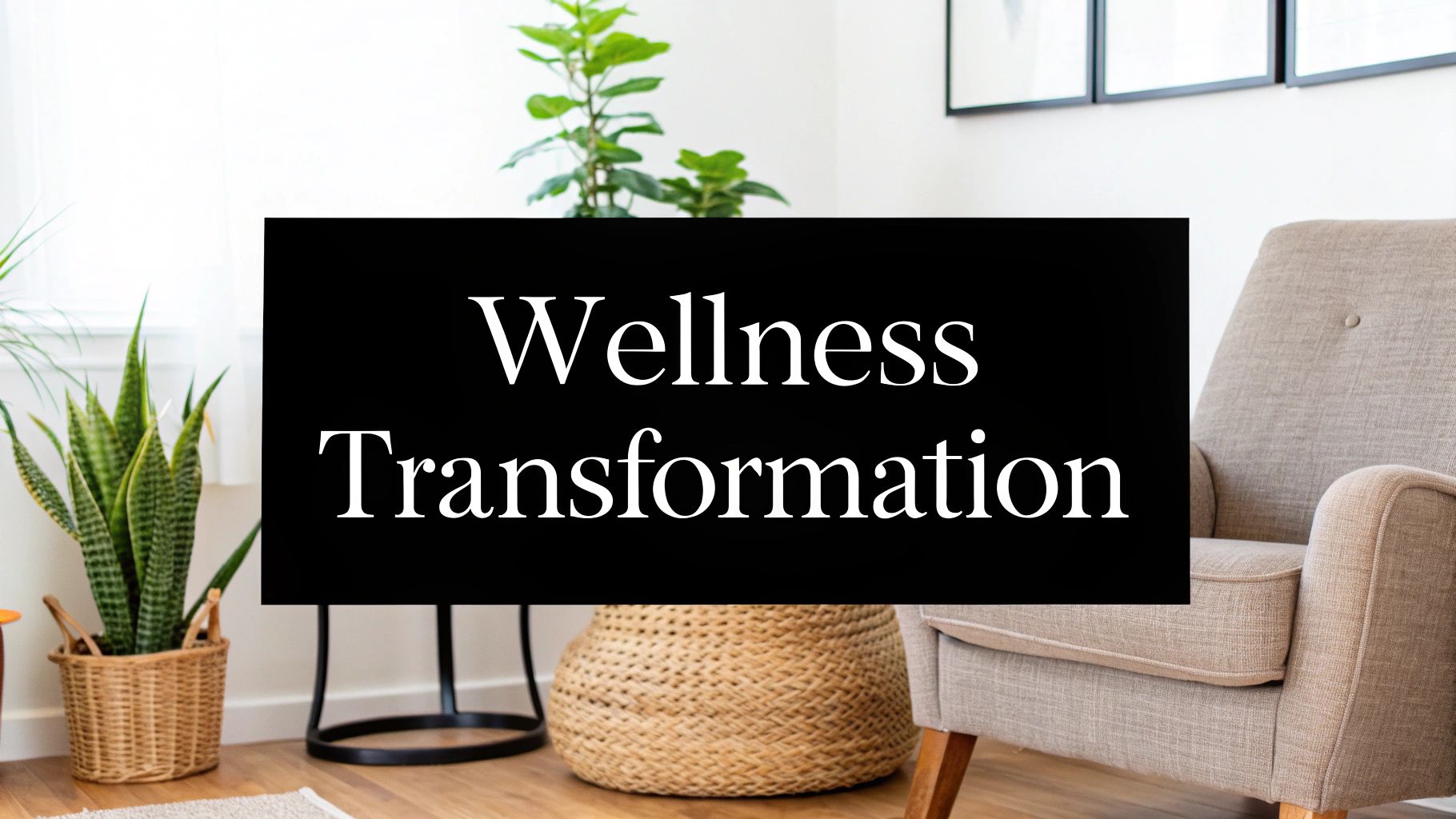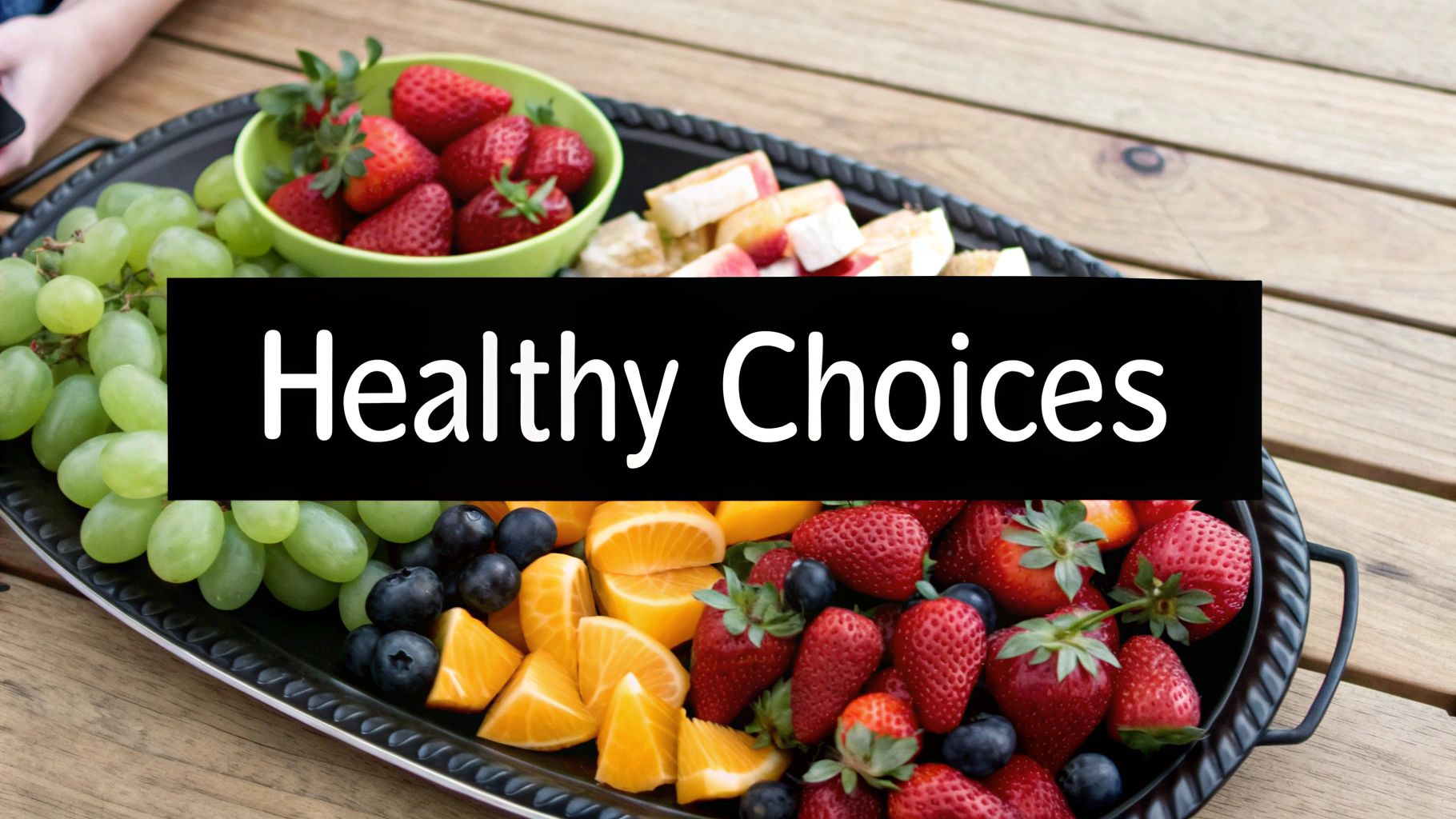
Benefits of Quitting Alcohol: Wellness Transformation Guide
The Complete Physical Transformation After Quitting Alcohol

Choosing sobriety is one of the most powerful decisions you can make for your health. The physical changes that follow are remarkable - your body begins healing and rebuilding itself from day one. Let’s explore the incredible transformation process that occurs when you stop drinking alcohol.
Immediate Improvements: The First Month
The first 30 days bring noticeable changes to your body. Your hydration levels improve significantly since alcohol no longer depletes your fluids. This leads to better skin appearance and reduced puffiness in your face and body. While sleep may be disrupted initially during withdrawal, most people experience much better sleep quality by week two or three. Your energy levels increase and mental clarity improves as your body adjusts to functioning without alcohol.
Restorative Power: Three to Six Months
The 3-6 month period is when deeper healing begins. Your liver, which filters toxins from your body, starts its recovery process during this time. As internal inflammation decreases, your organs function more effectively. This creates a positive cycle - as one system improves, it helps other bodily processes work better too. Many people report feeling physically “lighter” and more energetic during this phase.
Long-Term Health Gains: Six Months and Beyond
The six-month to one-year period brings substantial improvements to your cardiovascular and immune health. Blood pressure often normalizes and heart function improves. Your immune system becomes stronger, helping fight off illnesses more effectively. According to research from the National Institute on Alcohol Abuse and Alcoholism, abstaining from alcohol can lead to liver cell regeneration and improved liver enzyme levels. This is especially important since alcohol use disorder often causes serious liver complications.
The Ongoing Transformation: Beyond One Year
After one year without alcohol, the health benefits continue multiplying. Your risk of developing alcohol-related diseases decreases significantly. Mental functions like memory and concentration keep improving. Many people find they think more clearly and make better decisions. The choice to quit drinking becomes an investment that pays increasing health dividends over time, allowing your body to function at its best.
Unlocking Mental Clarity and Cognitive Excellence

When you stop drinking alcohol, your mind goes through remarkable changes alongside your body. The mental benefits reach far beyond just feeling better physically - they touch every aspect of how your brain works and processes information. This mental reset is essential for building a fulfilling life without alcohol.
Sharper Focus and Enhanced Concentration
Most people notice they can focus better within days or weeks of quitting alcohol. This happens because alcohol interferes with brain chemicals that help us concentrate and process information. As these chemicals return to normal, your ability to pay attention and stay focused naturally improves. Think of it like wiping a foggy mirror clean - suddenly everything becomes crisp and clear.
Improved Memory and Cognitive Function
Your memory also gets stronger when you stop drinking. Research shows that alcohol can damage brain cells involved in forming memories and learning new information. The good news is that your brain has an amazing ability to heal itself. People who quit drinking often find they can remember both recent events and old memories more easily. They also learn new skills and information more effectively.
The benefits go beyond just better memory. People who stop drinking typically see improvements in their ability to plan ahead, stay organized, control their behavior, and react quickly. For those who drank heavily before, these improvements can be dramatic. Many studies have found that much of the brain damage from alcohol can be reversed through staying sober. For more details on the science behind these improvements, check out this research on the health benefits of quitting drinking.
Enhanced Emotional Regulation and Decision-Making
Quitting alcohol also helps stabilize your emotions. Alcohol often makes mental health challenges worse and makes it harder to handle feelings effectively. Without alcohol in the picture, many people find their anxiety and mood swings decrease naturally. This emotional balance makes it easier to handle stress and develop better ways to cope with life’s challenges.
With clearer emotions comes better judgment. Free from alcohol’s effects, you can think through choices more carefully and make decisions you feel good about later. This leads to stronger relationships, smarter financial choices, and a greater sense of control over your life direction.
Practical Strategies for Maximizing Cognitive Benefits
To get the most mental benefit from quitting alcohol, try these proven approaches:
- Prioritizing Sleep: Set regular sleep and wake times and create a calming bedtime routine. Quality sleep helps your brain heal and function at its best.
- Managing Stress: Find healthy ways to handle pressure, like meditation, gentle movement, or spending time outdoors.
- Engaging in Mental Stimulation: Keep your mind active with puzzles, new hobbies, reading, or learning new skills.
- Building a Support System: Connect with understanding friends, family members, or support groups who encourage your sobriety journey.
Following these strategies helps reinforce the natural mental improvements that come with sobriety. The journey to mental clarity takes time, but the lasting benefits make it worthwhile. Each day without alcohol is an investment in your brain health and cognitive abilities.
The Long-Term Health Revolution: Disease Prevention and Longevity
Giving up alcohol delivers far more than short-term benefits - it’s an investment in your long-term health and vitality. When you stop drinking, you set in motion a series of positive changes that can add years to your life while dramatically reducing disease risks.
Lowering Your Risk of Serious Diseases
One of the most compelling reasons to quit alcohol is the significant drop in disease risk. Alcohol is a known cancer-causing substance, and each year of sobriety further reduces cancer risk. Beyond cancer prevention, going alcohol-free helps maintain healthy body weight, improves how your body processes insulin, and keeps blood pressure in check. This combination of benefits substantially lowers your chances of developing chronic conditions, particularly heart disease. For a deeper look at the health impacts of different drinking patterns, check out this analysis of drinking and longevity.
Boosting Your Cardiovascular Health
Alcohol can take a serious toll on your heart by causing high blood pressure, heart failure, and stroke. But when you stop drinking, your cardiovascular system begins healing itself. Your blood pressure returns to normal levels, heart function improves, and your risk of heart complications drops significantly. These heart-healthy changes are key factors in extending both your lifespan and your quality of life.
Strengthening Your Immune System
Regular drinking weakens your body’s natural defenses, making you more vulnerable to illness. When you quit alcohol, your immune system regains its strength and better fights off infections. This means fewer sick days and more energy to fully engage in life’s activities.
Promoting Cellular Regeneration
Alcohol disrupts your body’s ability to repair and regenerate cells. By removing this interference, you allow your body to heal at the cellular level. This improved cellular function supports overall health and contributes to a longer life span. The combination of cellular repair and stronger immunity creates a foundation for lasting wellness.
Tracking Your Progress and Amplifying the Benefits
Monitoring your health improvements can provide powerful motivation. Keep track of key indicators like blood pressure, weight, and resting heart rate to see tangible evidence of how sobriety benefits your body. For even greater impact, combine your alcohol-free lifestyle with regular exercise, balanced nutrition, and stress management. These healthy habits work together to build a strong foundation for long-term wellbeing. Tools like Soberly can help you stay on track by logging your progress, managing urges, and connecting with others on similar journeys.
Mastering the Withdrawal Journey: Your Safety-First Guide

When you decide to stop drinking alcohol, understanding and safely managing withdrawal symptoms becomes critical. While quitting brings many benefits, the withdrawal phase requires careful attention and proper medical support to ensure your wellbeing during this important transition.
Understanding Alcohol Withdrawal Syndrome (AWS)
Your body develops a physical dependence on alcohol over time. When you stop drinking, your nervous system needs to readjust, which can trigger various symptoms. These can range from mild discomfort to serious medical issues. Being aware of what to expect helps you prepare and stay safe as your body readjusts to functioning without alcohol.
Timeline and Symptoms of Withdrawal
The withdrawal process typically unfolds over several days, with symptoms starting within hours of your last drink and reaching their peak during the 24-72 hour period:
- Early Stage (6-12 hours): You may experience anxiety, trouble sleeping, nausea, shaking, and sweating
- Second Stage (12-48 hours): Your heart rate and blood pressure may increase, and you might feel confused
- Third Stage (48-72 hours): More severe symptoms like seizures or hallucinations can occur in some cases. A serious condition called delirium tremens (DTs) may develop, causing confusion, agitation and fever
How long and intense your symptoms are depends on factors like how much and how often you’ve been drinking. Even mild symptoms need close monitoring since they can quickly become more severe.
Seeking Medical Support for Withdrawal
Getting proper medical care during withdrawal is essential for your safety. Medical professionals can prescribe medications to ease symptoms and monitor your vital signs throughout the process. Recent studies highlight why medical oversight matters - alcohol withdrawal syndrome (AWS) leads to 2.3% of hospital stays, comparable to common conditions like diabetes and heart failure. You can learn more about these findings here.
Building a Support System and Managing Symptoms
Having people to lean on makes a big difference during withdrawal. Connect with family, friends, or support groups like those offered through Soberly for emotional support and encouragement.
These practical steps can help manage withdrawal symptoms:
- Hydration: Keep drinking water throughout the day
- Nutrition: Eat balanced meals with plenty of vitamins and minerals
- Rest: Make sleep and relaxation a priority
- Mindfulness and Relaxation: Try deep breathing or meditation to reduce anxiety
Getting through withdrawal safely opens the door to the many benefits of an alcohol-free life. With proper medical care and support, you can navigate this challenging but important phase successfully.
Creating Your Vibrant Alcohol-Free Social Life

When you decide to quit drinking, rethinking your social life is a natural part of the process. While this might feel overwhelming at first, you can absolutely build meaningful connections and have fun without alcohol. The key is developing new ways to socialize that align with your alcohol-free lifestyle.
Navigating Social Situations Without Alcohol
Many gatherings feature alcohol as a central element, but you can handle these situations confidently with some preparation. Bring your favorite non-alcoholic drinks, focus on having genuine conversations, and remember your reasons for choosing sobriety. Being clear about your choice helps you stay committed when faced with offers to drink.
Building a Supportive Social Network
The people around you play a vital role in your alcohol-free journey. Start by connecting with friends and family members who support your decision. Consider expanding your circle through sober communities - platforms like Soberly make it easy to meet others who share your commitment to an alcohol-free lifestyle.
Discovering Engaging Sober Activities
Fun social activities don’t need alcohol to be enjoyable. Try these alcohol-free options:
- Join a local sports team or hiking group
- Take classes in cooking, art, or music
- Volunteer for causes you care about
- Host game nights or movie marathons
These activities not only help you meet new people but also contribute to your overall well-being as you embrace sobriety.
Handling Peer Pressure and Setting Boundaries
Dealing with pressure to drink is common, especially early on. Practice simple, direct responses like “No thanks, I’m not drinking” or “I’ll have a sparkling water.” Set clear limits with friends and family about your choice. Remember that true friends will respect your decisions and support your health goals.
Maintaining Strong Connections While Sober
You can keep meaningful relationships strong without sharing drinks. Instead of meeting at bars, suggest coffee dates, walks in nature, or attending events together. These shared experiences often lead to deeper conversations and stronger bonds than alcohol-centered activities ever did. By focusing on authentic connection and finding new ways to spend time together, you’ll build lasting relationships that support your alcohol-free journey.
Maximizing Professional Success Through Sobriety
Taking control of your relationship with alcohol can open up powerful opportunities for career growth and financial stability. Understanding the specific ways that sobriety strengthens your professional life helps motivate lasting change. Let’s explore the key advantages you’ll gain.
Enhanced Focus and Productivity
When you stop drinking, mental clarity and concentration improve dramatically. Research shows that alcohol disrupts crucial sleep patterns and impairs cognitive function, making it harder to stay focused at work. Think about the difference between giving an important presentation after poor sleep from drinking versus feeling refreshed and sharp. This enhanced mental clarity allows you to accomplish more in less time and produce higher quality work.
Improved Decision-Making and Problem-Solving
A clear mind makes better choices. Without alcohol clouding your judgment, you can evaluate situations more objectively and make sound decisions backed by logic rather than impulse. This strengthened decision-making ability proves invaluable when managing complex projects, handling workplace challenges, or plotting your next career move. You’ll also find yourself solving problems more creatively and effectively.
Increased Energy and Reduced Sick Days
Most people experience a significant boost in energy levels after quitting alcohol. That renewed vitality translates into greater engagement at work and motivation to pursue ambitious professional goals. You’ll also take fewer sick days since you won’t be dealing with hangovers or alcohol-related health issues. Being consistently present and energized helps establish you as a reliable, high-performing team member.
Building Stronger Professional Relationships
Sobriety allows you to form more meaningful connections with colleagues and clients. Rather than relying on alcohol to facilitate networking, you can build authentic relationships grounded in mutual respect and clear communication. These stronger professional bonds often lead to new opportunities while creating a more supportive work environment. The quality of your interactions improves dramatically.
Financial Benefits and Reinvestment
The money saved by not drinking adds up quickly. Consider your typical monthly alcohol spending - those funds can now go toward advancing your career through courses, conferences, certifications, and other professional development. Combined with reduced healthcare costs from better health, the financial advantages of sobriety provide more resources to invest in your future success.
Ready to transform your life and unlock your full potential? Soberly provides the tools and support you need to succeed on your sobriety journey, empowering you to achieve lasting wellness and maximize your professional success.